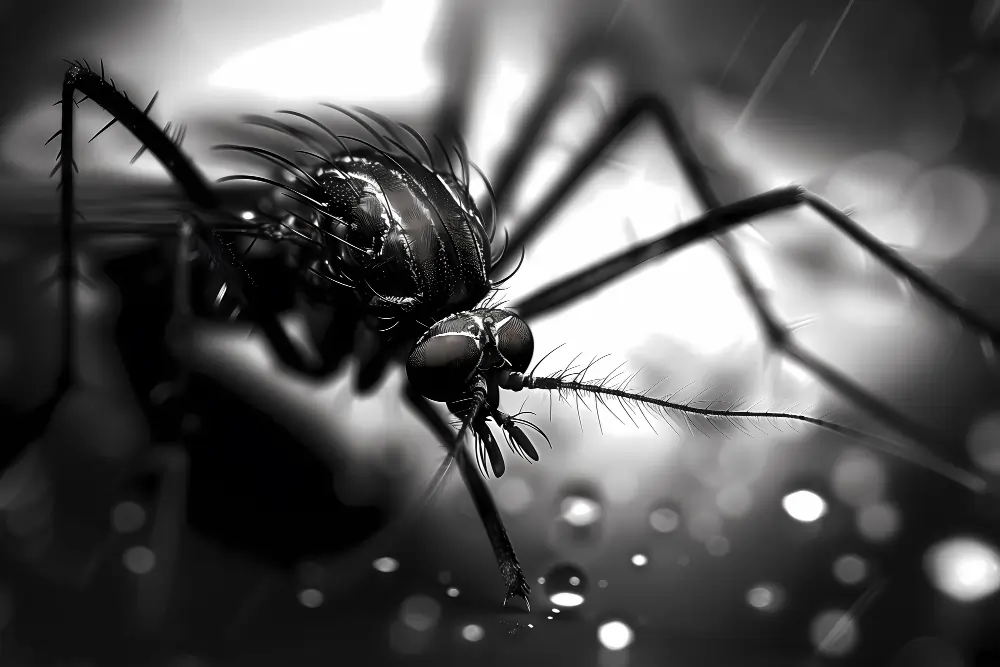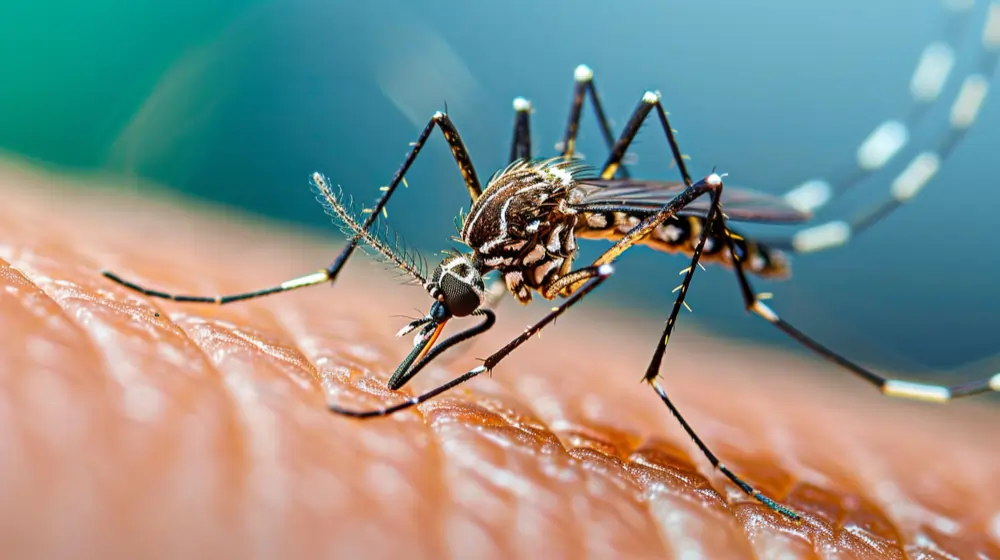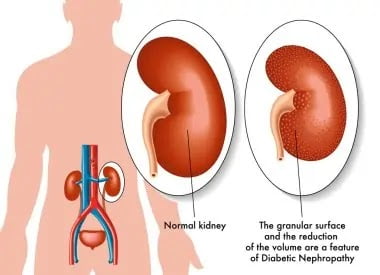
Dengue fever is a mosquito-borne illness. About half of the world’s population is now at risk of dengue with an estimated 100–400 million infections occurring each year. It is caused by the dengue virus and can lead to severe flu-like symptoms. In this article, we will explore the causes of dengue and discuss the warning signs that can help individuals identify the infection early on.
Introduction
Dengue fever has become a global health concern, particularly in tropical and subtropical regions. It is important to understand the warning signs and causes of this disease to prevent its spread and ensure early detection.
What is Dengue?
Dengue (pronounced DENgee) fever is a painful, debilitating mosquito-borne disease caused by any one of four closely related dengue viruses. These viruses are related to the viruses that cause West Nile infection and yellow fever. It is prevalent in urban and semi-urban areas, especially where sanitation is inadequate.
Types of dengue
There are four known types of dengue viruses, labeled as serotypes 1 to 4. All four types can cause dengue fever, but the symptoms can vary in severity.
Is Dengue a Serious Problem?
Yes, dengue is indeed a serious problem. It is a widespread and potentially life-threatening illness that affects millions of people worldwide. Every year, numerous dengue cases are reported, causing significant morbidity and mortality, particularly in tropical and subtropical regions. The World Health Organization has classified dengue as one of the fastest-growing mosquito-borne diseases globally.
Dengue fever can range from mild to severe, with some cases progressing to dengue hemorrhagic fever (DHF) or dengue shock syndrome (DSS). Severe dengue can lead to organ failure, excessive bleeding, and even death if not promptly diagnosed and managed. It poses a significant burden on healthcare systems, communities, and individuals affected by the illness.
Preventing the transmission of dengue is crucial to mitigating its impact, and public health efforts, community engagement, and personal protective measures play a vital role in reducing the risk of dengue infections.
How Long Will Dengue Last?
The duration of dengue fever can vary depending on several factors, including the individual’s immune system and the severity of the infection. In general, dengue fever lasts for about 2 to 7 days. During this time, individuals may experience symptoms such as high fever, severe headache, joint and muscle pain, nausea, vomiting, and a rash.
It’s important to note that dengue fever is characterized by a sudden onset of symptoms, and the fever itself can be quite high. However, the acute phase of dengue typically resolves after the initial few days, and most people start feeling better. It’s crucial to stay hydrated, get plenty of rest, and follow any recommendations or treatment provided by healthcare professionals.
If the illness progresses to severe dengue, the duration of the disease can be longer, and hospitalization may be required. It’s essential to seek medical attention if symptoms worsen or if warning signs of severe dengue, such as persistent abdominal pain, bleeding, difficulty breathing, or organ impairment, are observed. Early detection and proper management are critical in ensuring a favorable outcome.
Warning Signs and Symptoms
Initial symptoms
The initial symptoms of dengue fever typically appear within 4 to 7 days after being bitten by an infected mosquito. These symptoms may include:
- High fever: Dengue fever often starts with a sudden high fever, usually lasting 2 to 7 days.
- Severe headache: Intense headaches, usually located behind the eyes, are a common symptom of dengue.
- Joint and muscle pain: Dengue can cause severe joint and muscle pain, making movement uncomfortable.
- Nausea and vomiting: Some individuals may experience nausea, vomiting, or both.
- Rash: A rash may develop a few days after the onset of fever, appearing as small red bumps on the skin.
Severe symptoms
In some cases, dengue fever can progress to a more severe form known as dengue hemorrhagic fever (DHF) or dengue shock syndrome (DSS). Warning signs of severe dengue may include:
- Severe abdominal pain: Persistent abdominal pain is a symptom of concern and may indicate severe dengue.
- Bleeding: Bleeding from the gums, nose, or under the skin can occur in severe cases.
- Difficulty breathing: Rapid breathing or shortness of breath may be present due to fluid accumulation in the lungs.
- Organ impairment: Severe dengue can affect the liver, heart, and other organs, causing organ dysfunction.
Causes of Dengue
Mosquito vector

The primary cause of dengue fever is the Aedes mosquito. Female mosquitoes become carriers of the dengue virus after biting an infected individual. When these infected mosquitoes bite another person, they can transmit the virus, leading to the development of dengue fever.
Dengue virus transmission
Dengue can be transmitted through various means, including:
- Direct transmission: When an infected mosquito bites a person, the virus can enter their bloodstream, leading to dengue fever.
- Vertical transmission: Infected pregnant women can pass the virus to their babies during childbirth or pregnancy.
- Blood transfusion: Blood products that contain the dengue virus can transmit the infection if given to someone who is not immune.
What is the Best Treatment for Dengue?
Currently, there is no specific antiviral treatment available for dengue fever. Treatment primarily focuses on relieving symptoms and providing supportive care to help individuals recover. Here are some essential aspects of dengue treatment:
- Rest and hydration: Individuals with dengue fever must get plenty of rest and stay well-hydrated. Drinking fluids, such as water, oral rehydration solutions, and electrolyte-rich drinks, can help prevent dehydration caused by fever, sweating, and vomiting.
- Fever management: Over-the-counter medication like acetaminophen (paracetamol) can be used to control fever and reduce pain. However, it is important to avoid non-steroidal anti-inflammatory drugs (NSAIDs) such as ibuprofen and aspirin, as they can increase the risk of bleeding.
- Close medical monitoring: Regular monitoring of vital signs, blood pressure, and other relevant parameters is necessary, especially for individuals with severe dengue. This allows for early detection of complications and timely intervention.
- Hospitalization for severe cases: Severe dengue, such as dengue hemorrhagic fever (DHF) or dengue shock syndrome (DSS), often requires hospitalization. Hospital care focuses on closely monitoring the patient’s condition, managing fluid balance, blood transfusions if necessary, and providing supportive treatment for organ impairment.
It is important to consult with healthcare professionals who can provide appropriate guidance and care for dengue fever. Self-medication or relying solely on home remedies is not recommended, particularly for severe cases. Early detection, proper medical management, and supportive care significantly contribute to better outcomes for individuals with dengue fever.
Prevention and Control
Mosquito control
Preventing the breeding of Aedes mosquitoes is crucial in reducing the risk of dengue transmission. Measures include:
- Eliminating standing water: Remove any containers, old tires, or other items that can collect stagnant water, as they serve as ideal breeding grounds for mosquitoes.
- Using insecticide: Apply approved insecticides to areas where mosquitoes breed or rest.
- Mosquito nets and screens: Sleep under bed nets and use window screens to prevent mosquito bites.
Protective measures
Individuals can take proactive steps to protect themselves from mosquito bites and reduce the risk of dengue infection:
- Wear protective clothing: Cover exposed skin with long sleeves, pants, and socks.
- Apply insect repellent: Use mosquito repellents containing DEET, picaridin, or other recommended ingredients.
- Stay indoors: Avoid going outdoors during peak mosquito activity times, especially during early morning and late afternoon.
What is the impact of Climate change on dengue?
Climate change has a significant impact on the distribution, seasonality, and intensity of mosquito-borne diseases like dengue fever. Dengue is primarily transmitted by Aedes mosquitoes, particularly Aedes aegypti. Here are several ways in which climate change affects dengue:
- Increased mosquito abundance: Warmer temperatures and changes in precipitation patterns provide favorable conditions for mosquitoes to breed and multiply. Aedes mosquitoes thrive in warm and humid environments, which become more prevalent with climate change. This leads to increased mosquito abundance, raising the likelihood of dengue transmission.
- Extended transmission seasons: As average temperatures rise, the duration of the mosquito’s breeding and activity season increases. This lengthens the period during which dengue transmission can occur, extending the risk of infection for vulnerable populations.
- Geographic expansion: Climate change can result in the expansion of the geographical range of Aedes mosquitoes. Warmer temperatures can allow these mosquitoes to survive and reproduce in areas where they were previously unable to thrive. This expansion increases the number of people at risk of dengue infection.
- Altered disease transmission dynamics: Changes in precipitation patterns can create conditions suitable for mosquito breeding sites. Heavy rainfall followed by periods of drought creates ideal breeding environments for Aedes mosquitoes, leading to rapid population growth. These changes in transmission dynamics can increase the frequency and severity of dengue outbreaks.
- Changes in human behavior: Climate change can also influence human behavior, such as increased use of irrigation systems and water storage due to water scarcity. These practices can inadvertently create more breeding sites for mosquitoes, enhancing the spread of dengue.
- Weakened public health infrastructure: Extreme weather events associated with climate change, such as hurricanes, floods, and storms, can damage public health infrastructure. Disrupted healthcare systems, inadequate sanitation services, and compromised disease surveillance make it more challenging to prevent, detect, and respond to dengue cases effectively.
Addressing the impacts of climate change on dengue requires a multifaceted approach, including mosquito control measures, improved public health infrastructure, community education, and global efforts to mitigate greenhouse gas emissions. It is crucial to adapt and strengthen public health systems to effectively combat dengue and other climate-related health risks.
Conclusion
Dengue fever is a serious health issue that requires attention and proactive measures. By understanding the causes of dengue and recognizing the warning signs, individuals can take necessary precautions to avoid infection. Effective mosquito control, personal protection measures, and awareness are essential for preventing the spread of dengue.
FAQs
Q1. Can dengue be spread directly between humans?
Yes, dengue can be transmitted directly from an infected individual to another person through blood transfusions or vertical transmission from mother to baby during childbirth or pregnancy.
Q2. Can dengue be transmitted through sexual intercourse?
No, dengue is primarily transmitted through the bite of infected mosquitoes and is not considered a sexually transmitted infection.
Q3. Is dengue curable?
There is no specific antiviral treatment for dengue fever. However, supportive care and symptom management can improve outcomes in most cases.
Q4. Is dengue contagious?
Dengue itself is not contagious and cannot spread directly from person to person. It requires the intermediary role of mosquitoes to transmit the virus.
Q5. Can a person get dengue more than once?
Yes, it is possible to get dengue more than once. However, having dengue provides some level of immunity against that specific serotype, potentially reducing the severity of subsequent infections.
Remember, staying vigilant, practicing mosquito control, and taking personal protective measures are key in preventing the spread of dengue fever and minimizing its impact on individuals and communities. Stay informed and take proactive steps to stay safe!


